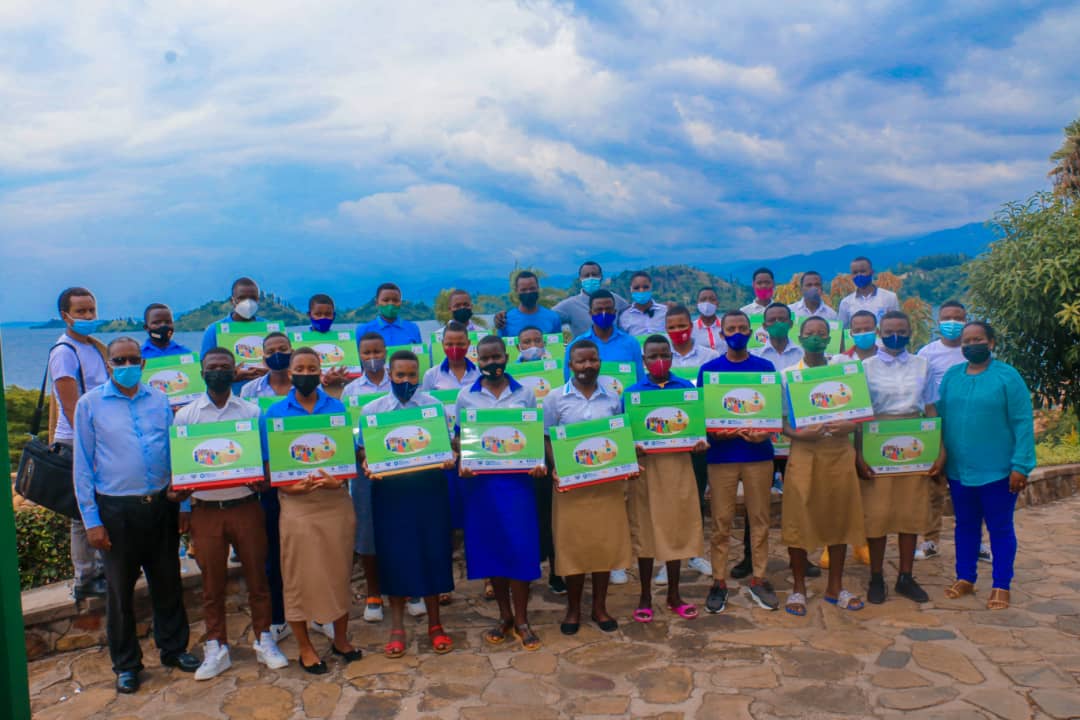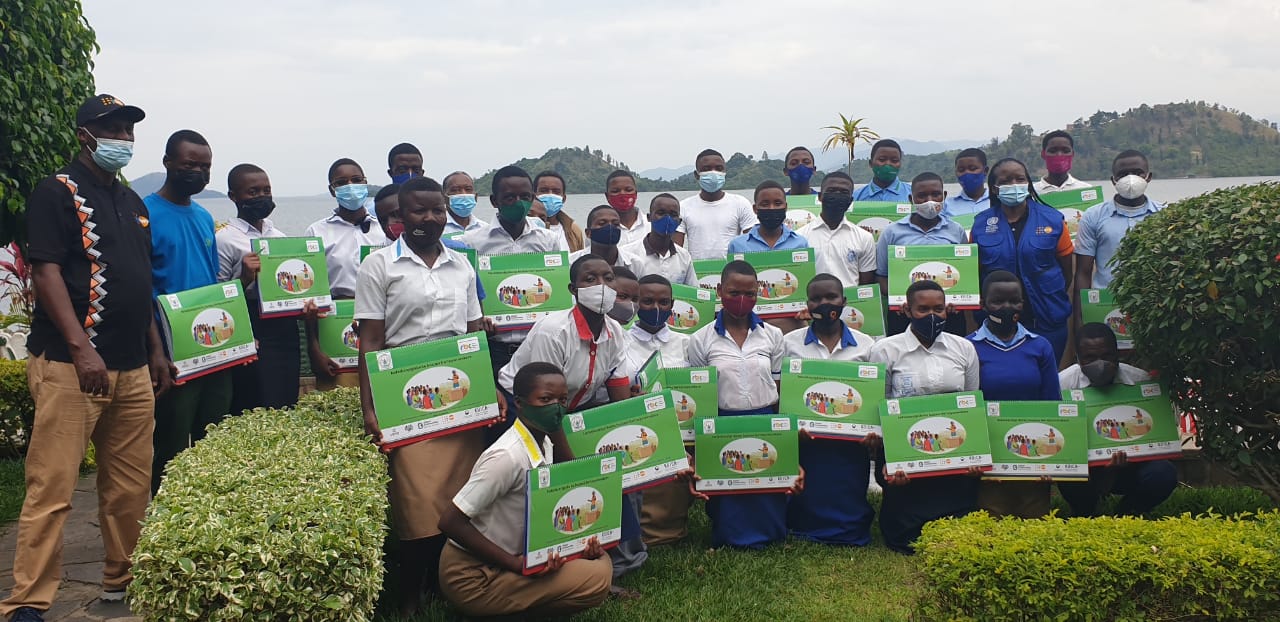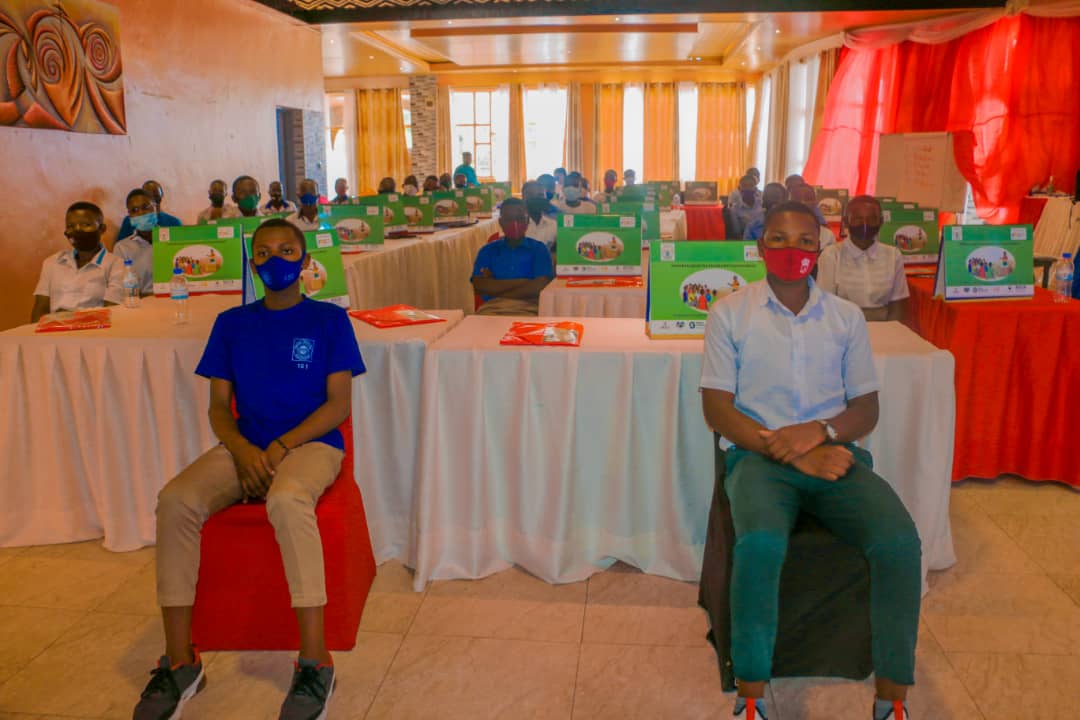UNFPA Rwanda, with support from the aid agency of the Republic of Korea, Korea International Cooperation Agency (KOICA), is implementing the “Healthy & Empowered Youth” project to empower adolescents and youth in Rwanda to realize their human right to equality, sexual and reproductive health, and freedom from violence and discrimination.
Launched in 2020, the project seeks to increase demand for and supply adolescent and Youth Sexual Reproductive Health (AYSRH) services and information through awareness-raising, services delivery, and capacity-strengthening to deliver quality youth-friendly services.
A recent UNFPA study on the status of AYSRHR in the three UNFPA-supported districts established that most students reported difficulties denying sexual requests from an adult; with Karongi at 34%, Nyamasheke at 27%, and Rusizi at 10%, further emphasizing the urgency to empower young people with the skills and information to make healthy decisions in promoting health and ending Gender-Based Violence.
In December 2021, UNFPA Rwanda, in partnership with District Leaders in Karongi, Nyamasheke, and Rusizi, conducted trainings for 90 Student Leaders in secondary schools to strengthen integrated health promotion activities through School Health Clubs and to benefit an estimated 34,000 students.
“I am so glad that I have the opportunity to learn about my health from health workers. I will also take this responsibility and share what I have learned with my fellow students. Our school will be one big healthy community.” Training Participant, Nyamasheke District.

The Students' training sought to adequately skill and prepare students to mentor their peers through the peer-to-peer education approach and School Health Clubs. The trained student leaders will work as Change Ambassadors, cascading the peer learning in an interpersonal and trusting environment. This approach is expected to strengthen healthy practices throughout the school communities.
“Young People are at the center of what UNFPA does. We believe that holistic empowerment of adolescents and youth requires nurturing their leadership skills to advocate for their rights and to foster life skills that increase opportunities for success later in life.” Kwabena Asante-Ntiamoah, UNFPA Representative.
Following a school profiling exercise conducted by UNFPA in June 2021, it was established that 193 of 273 (70%) schools in Karongi, Nyamasheke and Rusizi had different types of school health clubs; and that only 9% of the schools had clubs that were providing SRH/GBV information. Consequently, the training of student leaders was proposed as a sustainable solution to strengthen school health clubs to provide integrated health information throughout schools using selected students as polyvalent agents for peer-to-peer learning.
To the extent possible, and in instances where many different ones exist, school management will merge clubs and instead support the integration of comprehensive health promotion within the school communities. It is important for students to view health as an interlinkage of sanitation, entrepreneurship, sports, music, life skills and so forth, as compared to standalone themes confined to the individual school clubs. This will maximize use of the valuable extracurricular time for all students and not just those who belong to clubs, with Teachers providing the necessary supportive environment.
“It is somewhat frustrating when students trust us with questions about their health and yet we are not able to answer them with confidence. This training is very helpful. Every Teacher coming from the Teacher Training College will graduate with better skills to help their students.” Training Participant from Rubengera Teacher Training College, Karongi District

Training Students attending Teacher Training Colleges is a sustainable approach that will enable more teachers to carry this knowledge to many schools after they graduate. Also, for the first time, the training included students living with hearing loss who attended the training with the support of sign language interpreters. The trained students will lead AYSRH health promotion in their schools and benefit 200 students in the supported districts.
“I do not get time to walk all the way to the health center to ask about my menstruation. And yet I cannot ask my parents. This training has taught me how to be clean and active during this important time of every month.” Training Participant from Rusizi District



